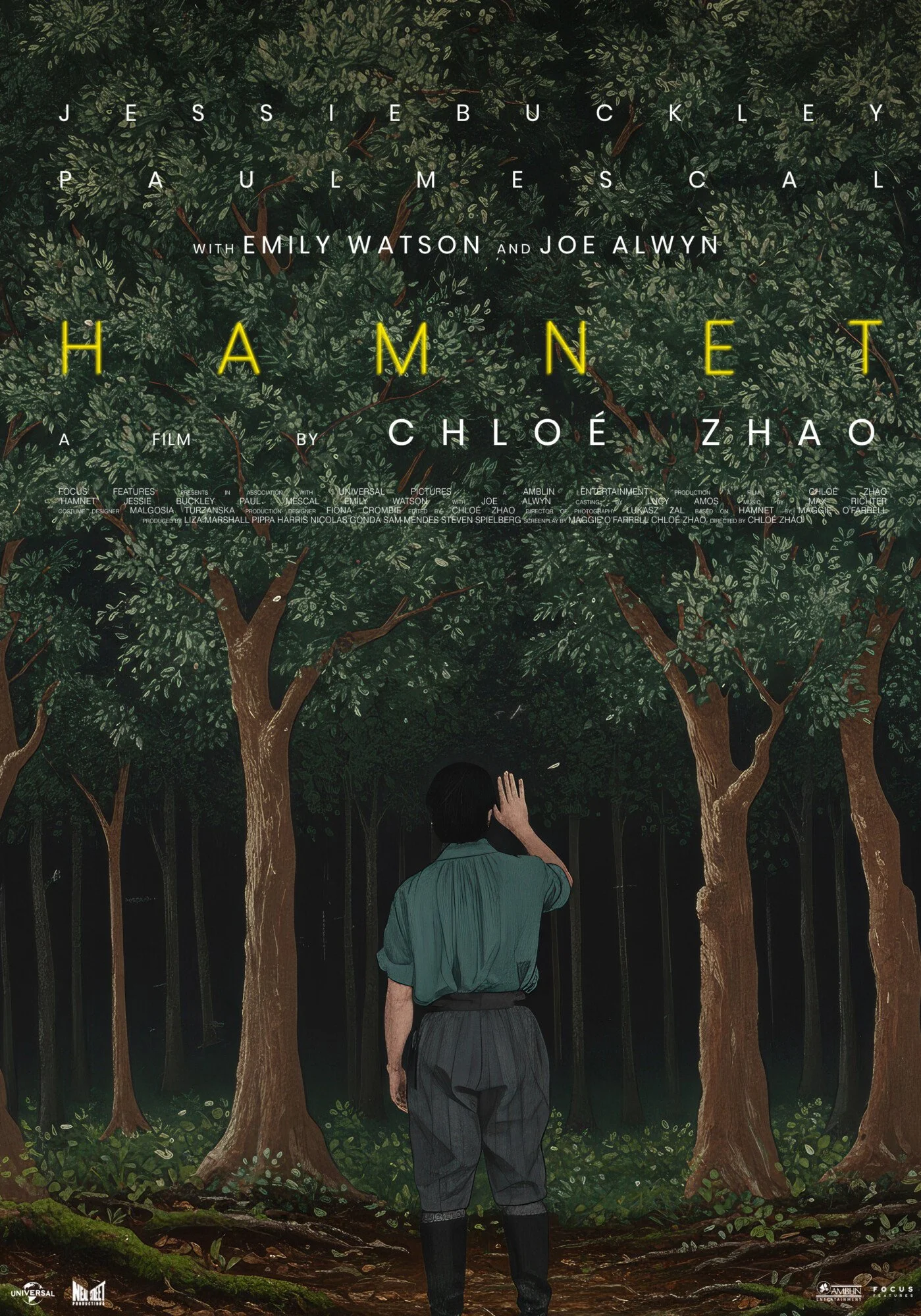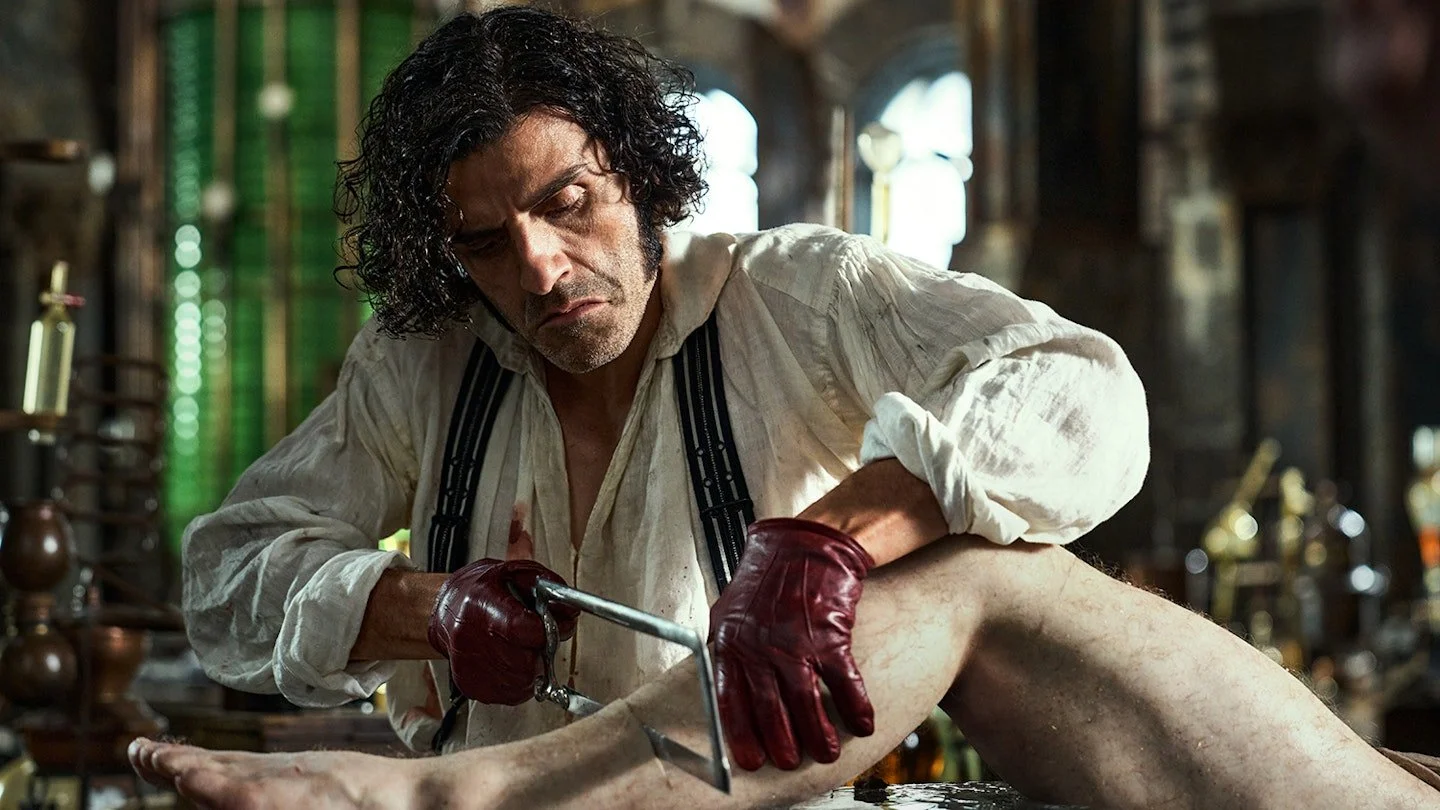Hamnet
There is nothing more universal than the feeling of grief, and Chloé Zhao, armed with two horsemen of the apocalypse of sadness — Paul Mescal and Jessie Buckley — proves that with full force.
Hamnet, adapted from Maggie O’Farrell’s novel, tells an imagined story of the son of William and Agnes Shakespeare. We see their meeting, the beginning of their life together, the birth of their children, and a seemingly simple, grounded, quietly happy life. Agnes tries to continue her mother’s traditions, stay connected to nature, and build a home with a young writer who is only beginning to show his promise.
At some point, tragedy enters their lives: the plague takes one of their three children — their only son, Hamnet. The film becomes a story about how two parents handle grief in completely different ways. And it gently leads us to the idea that this personal loss eventually inspired one of the greatest tragedy ever written — Hamlet.
Even though the story is tied to real historical figures, the film looks and feels almost fairy-tale-like. You spend a long time watching it without attaching it to “real people”. It’s something that works on a universal level, with any characters, in any time, even today. Because of that universality — and because of how direct and clear the storytelling is — the film creates this all-consuming sense of presence. It feels as if you’re standing inside this family’s home, somewhere in the corner, observing everything that happens.
The film is deeply focused on loss, grief, heartbreak, and the very different ways in which even two people who love each other try to survive what happened. Agnes chooses quiet agony, personal pain, and isolation. William distances himself, throws himself into work, surrounds himself with people, and channels both his emotions and his shame — for not being with his son when he died — into art.
And even though scholars will tell you that Hamlet and Hamnet don’t really share a direct connection, the film brings you to this idea in such a beautiful, gentle, non-pushy way that you can’t help but admire Zhao’s intention.
The story is beautifully complemented by breathtaking cinematography from Polish cinematographer Łukasz Żal and a moving score by Max Richter. And the acting… well, that’s where the heartbeat of the film truly lies.
Though the beginning leans more into William’s story, the film quickly becomes a showcase for Jessie Buckley as Agnes Shakespeare. To say she is astonishing is a massive understatement. This is an absolute Oscar performance — if it doesn’t happen, I’ll eat my shoe. The depth of her pain on screen, the sheer heartbreak she delivers… it’s overwhelming in the best way.
Paul Mescal as William Shakespeare is equally remarkable. And on a side note — dear Mr. Mescal, can you please do a comedy for a change? Thank you. Jacobi Jupe, as Hamnet Shakespeare, delivers such astonishing depth and emotional clarity at just 12 years old that it quite literally takes your breath away.
I’m not a parent — and likely never will be — but the mastery with which this deeply human, painfully piercing story is portrayed on screen deserves the highest praise. The film’s final 30 minutes are a full-on battle with ugly crying. And to be honest with you, many people in my cinema lost that fight, which is completely understandable. (To be even more honest, somewhere in the middle of writing this review, a tear fell onto my keyboard and jammed the letter “N” for a few minutes.)
Ultimately, Chloé Zhao has created a very understandable, slightly fairy-tale-like story that at times feels like physically turning the pages of a book — a story that will leave absolutely no one indifferent. Just like Shakespeare’s timeless dramas.
9.5/10
UPD: Speaking of the look and the beautiful cinematography of Hamnet — Chloé Zhao, Jessie Buckley, and photographer Agata Grzybowska created a book during the making of the film, focusing on the creative process and the haunting atmosphere it builds. Check out Even as a Shadow, Even as a Dream from MACK Books.



